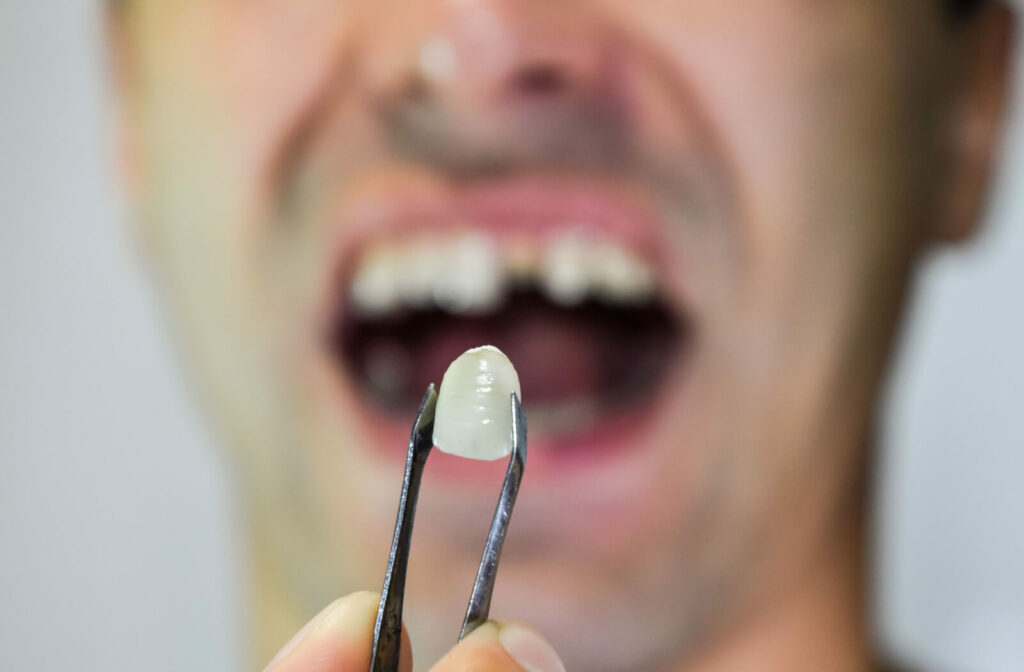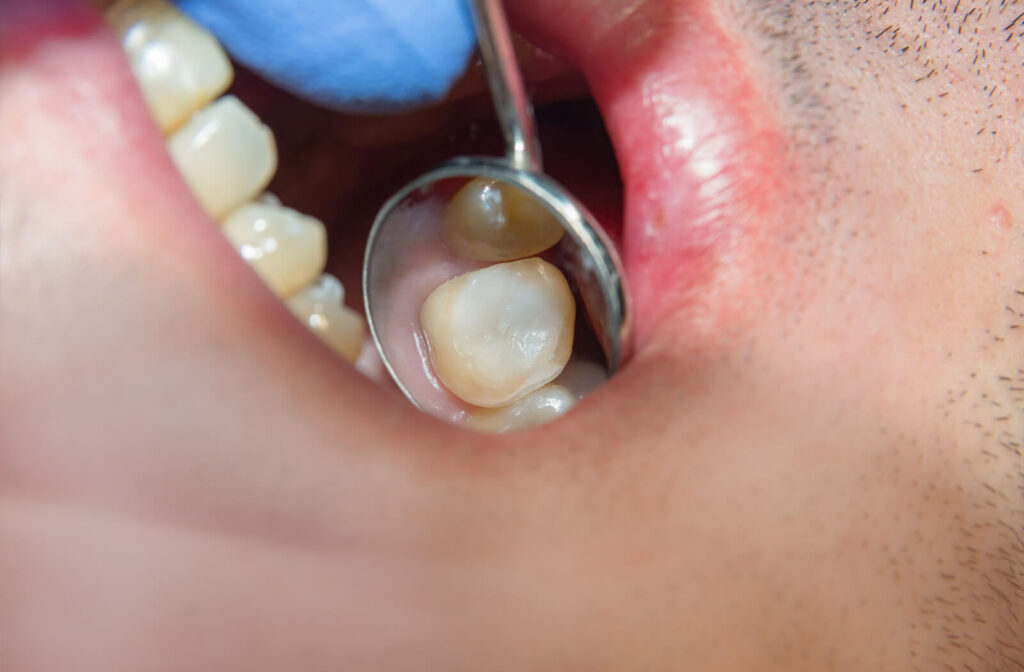For many people, it takes a lot to work up the courage to get a root canal done. After the procedure is over, it may feel like a whole other ordeal to have to go back for a dental crown procedure. You might be wondering “Do I even need a crown?”.
If you want to protect your tooth and keep it strong for years to come, a crown might be the finishing touch you need. However, not every situation calls for a crown.
The best course of action for your tooth will ultimately be determined by your dentist, but you can learn about the situations where you may receive a root canal without a crown.
What Is a Root Canal and Crown?
When referred to a root canal specialist (endodontist), the root canal is usually completed and a temporary filling material to cover the root filling material is placed. After that, you are typically referred back to your dentist to have the tooth restored with a crown.
Dental crowns are tooth-shaped “caps” that can be fitted over your natural tooth. It’s sort of like a tiny little helmet for your tooth. The crown restores the tooth’s shape, size, strength, and appearance.

Why Getting a Crown Is a Good Idea
During a root canal procedure, the dental pulp, which is usually inflamed, infected, or necrosed, is removed. The space is then cleaned and filled with a biocompatible filling material. Here are some common situations where a crown is needed:
Your Tooth May Be Weak
Tooth decay and having a significant amount of dental tissue removed during a root canal weaken the tooth. Tooth decay paired with a root canal puts the tooth at risk of crumbling under the pressure of daily chewing and grinding.
A crown will protect the tooth by covering it, reinforcing its outer structure, and preventing it from further damage.
Bruxism
Those who grind and clench their teeth, a condition known as bruxism, will typically need a dental crown after root canal therapy. Bruxism can weaken perfectly healthy teeth; imagine what grinding teeth can do to a hollowed-out tooth.
Tooth Discolouration
Tooth discoloration can be caused by tooth decay or a root canal. A crown should be placed in this case for cosmetic reasons.
Previous Restorations
If a root canal is performed on a tooth that has previously been treated for tooth decay, there’s a good chance that the tooth will develop another problem in the future. A crown completely covers the tooth and prevents future infections.
Do You Root Canals Need Crowns?
The severity of the break or decay that caused the root canal in the first place is an important factor when getting a dental crown. If the surface crack or decay is minor, it can sometimes be filled in with resin rather than requiring a full dental crown.
When a patient’s oral health is otherwise good and the teeth on either side of the affected tooth are strong, a crown isn’t always needed.
Tooth Location
The front teeth aren’t subjected to the same amount of pressure as the molars. They can be restored with a dental filling and left without a crown after a root canal.
Minimal Damage
The more damaged or infected the tooth, the more likely you’ll need a dental crown. If the dentist or endodontist has to remove a large portion of the tooth during the root canal procedure, you’ll most likely need a crown to strengthen the tooth.
Molars and premolars with a large amount of tooth remaining and a low risk of fracture may still be candidates for filling-only restorations after a root canal.
It Depends On Your Teeth
The dentist will recommend a good and permanent solution based on the condition of your tooth.
If the tooth is a premolar, molar, or one of the back grinding teeth, a dental crown will be needed to be placed over it after it has had a root canal. These teeth must be kept strong because they are used constantly while eating throughout the day.
If the tooth has previously been damaged or is now significantly weaker because all of the pulp has been removed, a dentist will commonly place a cap over it to keep it strong and prevent further damage.
In short, if you’re scheduled for a root canal, your dentist will know best if you need a crown or not. They have your best interests at heart and want you to walk away with a strong healthy smile.
If you have any questions about root canals, dental crowns, or your oral health, contact the team at Hometown Dental.





